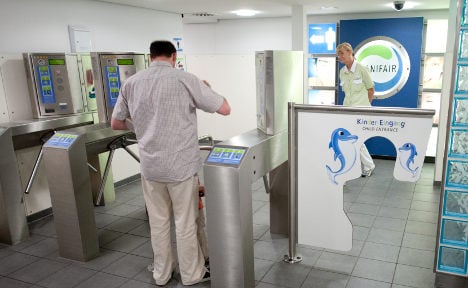Perhaps they are in a rush, fail to see the many signs telling them their ticket can be put towards the purchase of things in the shops – or dislike feeling pushed into buying something. Data from one operating firm Tank und Rast shows that around one in five coupons are not cashed in.
The system demands 70 cents to use the toilet facilities, but the ticket that is issued is worth 50 cents when used to fund part of a purchase at the shop. Yet only around 80 percent of the tickets are cashed in, Tank und Rast told Die Welt newspaper.
The paper calculated that around €7.5 million worth of tickets are simply thrown away – creating profits for Sanifair, the owner of Tank und Rast.
And although similar systems in train stations limit the cashing in of toilet tickets to one per purchase, that is not the case at autobahn stops. “Generally two or three are used together,” Andreas Rehm, Tank und Rast spokesman told the paper.
And they are valid for the rest of the year they are issued – and for three years after that. Some are sold on Ebay, Die Welt said.
Motoring association the ADAC has criticized the recent increase from a 50-cent fee which was fully refunded, to the system where 70 cents are paid and the ticket is only worth 50 cents.
Many neighbouring countries provide toilets free at motorway service stations. And a group of service stations near, but not actually on, the autobahns, have launched a campaign whereby people pay 50 cents to use the toilets – and get a voucher worth 70 cents to spend at the shop.
The Local/hc



 Please whitelist us to continue reading.
Please whitelist us to continue reading.
Member comments